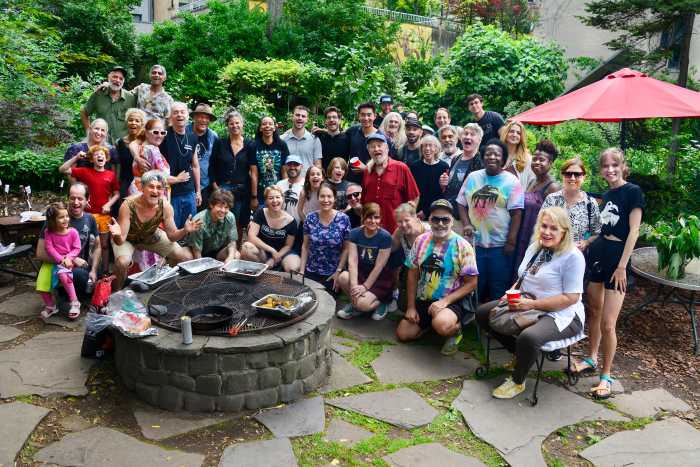By Scott Harrah
Among successful stage and TV actors, David Marshall Grant is a breed apart. After playing the gay character Russell on the 1980s prime-time TV soap “Thirtysomething” and then lawyer Joe Pitt in Tony Kushner’s “Angels in America,” he shifted creative gears and assumed the role of respected playwright. In 1998, he began his writing career Downtown with the Off-Broadway play “Snakebit,” which played in the West Village before being transferred to a more commercial run at the Century Theater in Union Square in 1999. His equally successful “Current Events” followed at the Manhattan Theater Club, and now Grant has written “Pen,” a dark drama about a wheelchair-bound, domineering mother and her rebellious son living in Long Island in 1969. We caught up with Grant a few days before his new play opened at Playwrights Horizons to talk about his Downtown roots in the theater and the transition from acting to writing.
You started out as a playwright in the Village. How did the Downtown theater scene help launch your writing career?
My first play, “Snakebit,” was produced at the Grove Street Playhouse and it eventually moved to the Century Theater, but it was really the Naked Angels Theater Company downtown that gave me my start.
It then made the regional theater circuit. Do you think New York is still the center of the theater universe for Off-Broadway?
I think that, by and large, most plays either start in New York or end up in New York. If you want to do theater, the best place to go is still New York City.
Tell us about your new play, “Pen.” What inspired you to write it?
I’ve always been curious about how disability affects families — not just the person who is disabled, because clearly that suffering is something we are so aware of. I think it’s something that affects families altogether…I’ve always been fascinated by how we deal with the inherent unfairness of life and try to process those feelings, the contradictory feelings that come up and how you try to resolve that. Those are the issues that interested me. [Also], my mom has a disability.
The title of your play is “Pen.” What does it signify?
It signifies, of course, a pen, which is the object the boy [in the play] steals [from his mother]. In stealing that object , he ends up giving the pen a lot of power… It’s sort of a Freudian thing. It also signifies a pen—a space where one feels trapped. It was no accident that the set is lifted off the stage platform so that a wheelchair will not just roll and crash off it. The people in that living room in the play are trapped, both physically and psychologically.
You’ve been very successful as an actor. Why did you decide to start writing?
I think I started writing because actors have time on their hands and…I had nothing better to do. It’s also been something that’s always intrigued me. I think that I was intimidated by the idea of what it meant to be a writer. I still have trouble calling myself a playwright. I feel at this point I can safely say I’m behaving like a playwright.
You played a gay character on “Thirtysomething” and appeared in both parts of “Angels in America.” What were those experiences like as an actor, in the age before “Ellen” and “Will & Grace”?
They were great. “Thirtysomething” was a bit of a scary time when I was still keeping my sexuality close to my chest, and that was a bit of a challenge [doing love scenes with another man, causing some sponsors to pull their ads from the show]. [But] “Angels in America” is one of the great plays of our time. Being a part of that was nothing short of miraculous.
You live in Brooklyn Heights. Where do you like to hang out when you’re Downtown?
I find myself at Bar Pitti on Sixth Avenue [in the West Village] a lot. I’ve been going there for years. You can sit outside and it’s a very European city-like experience.
“Pen,” written by David Marshall Grant and directed by Will Frears, is playing through April 16 at Playwrights Horizons, 416 West 42nd Street, between 9th and Dyer Avenue. (212-279-4200; playwrightshorizons.org).






































